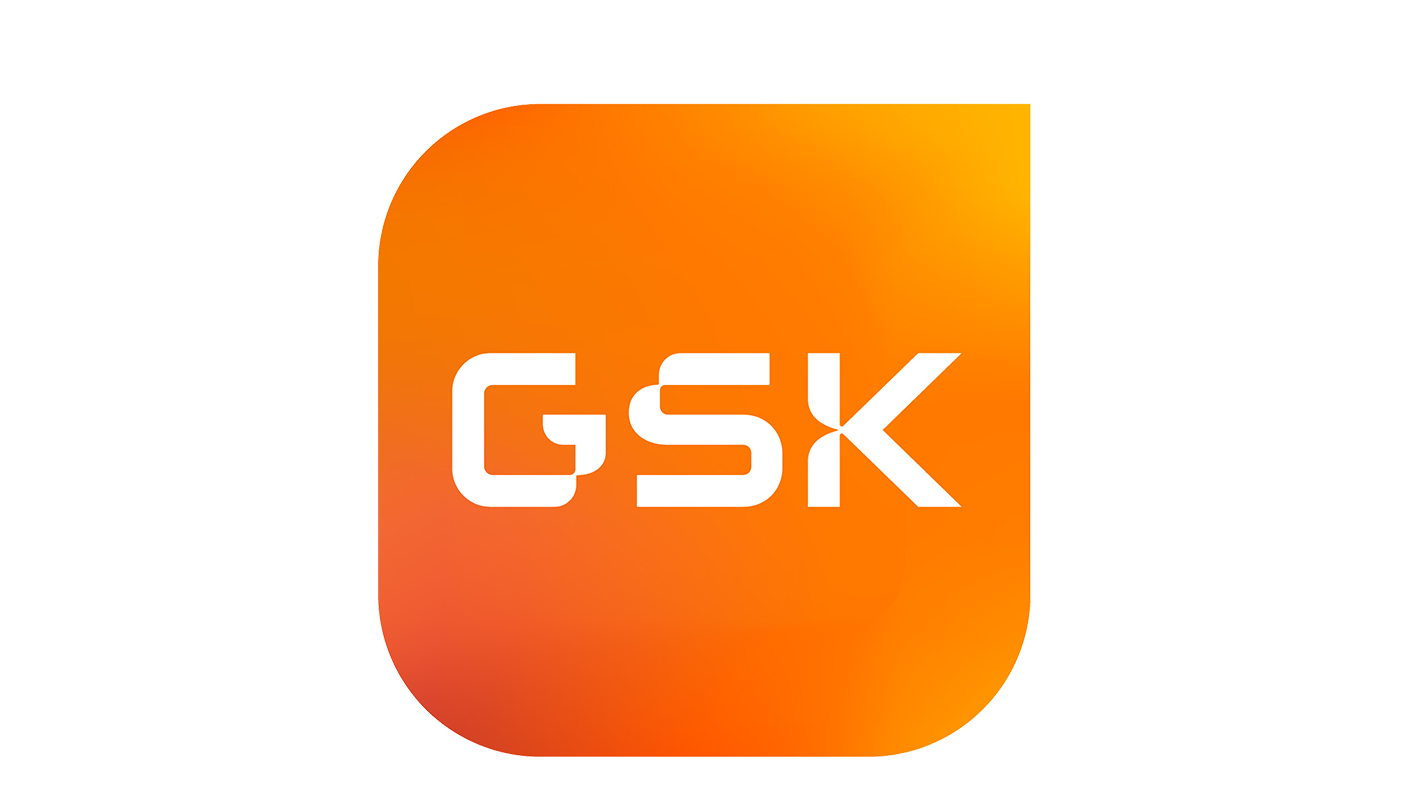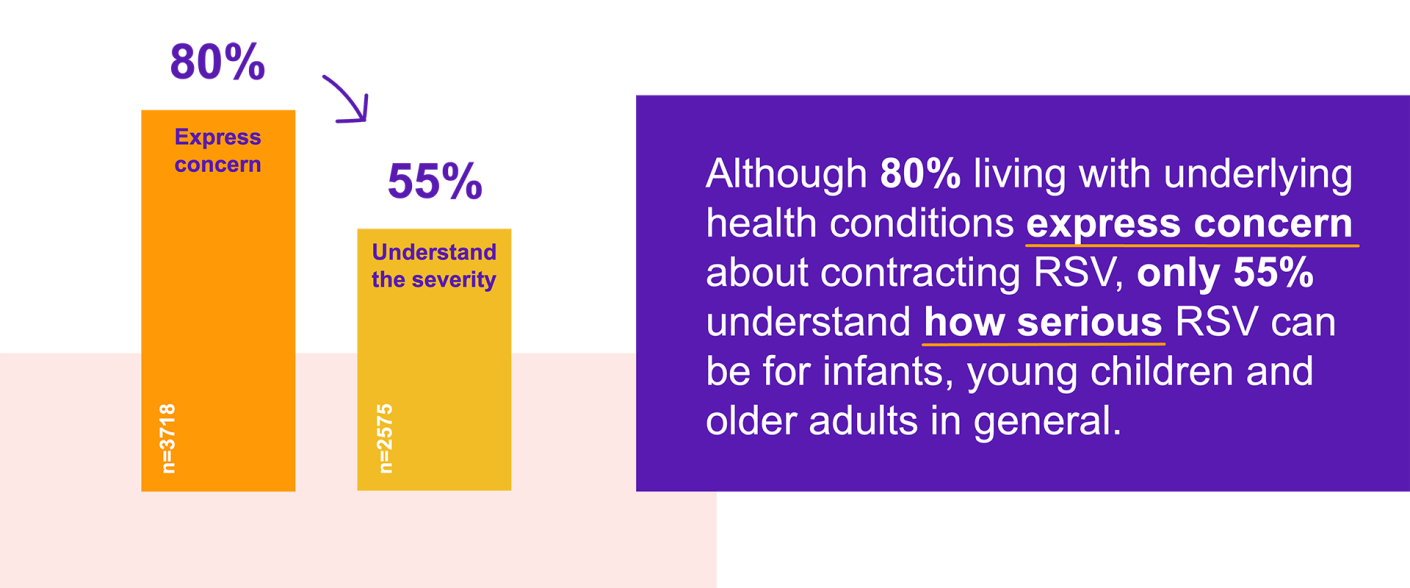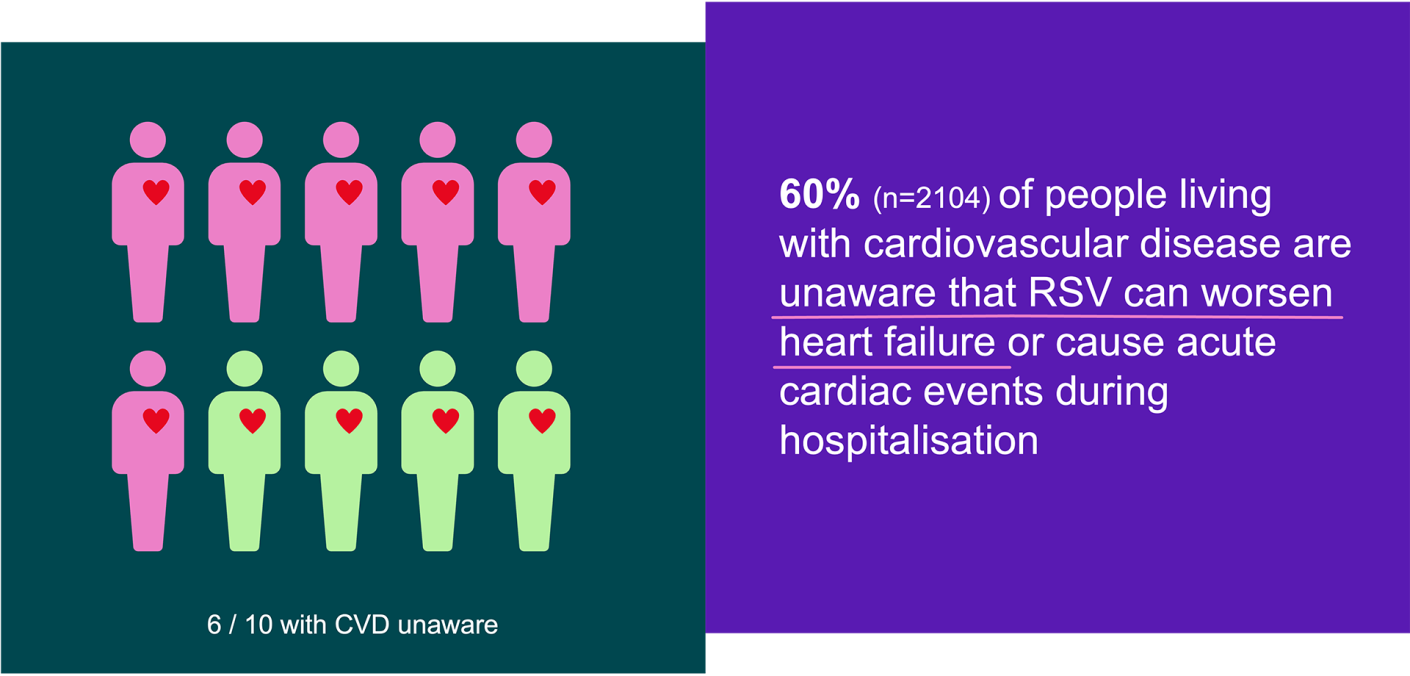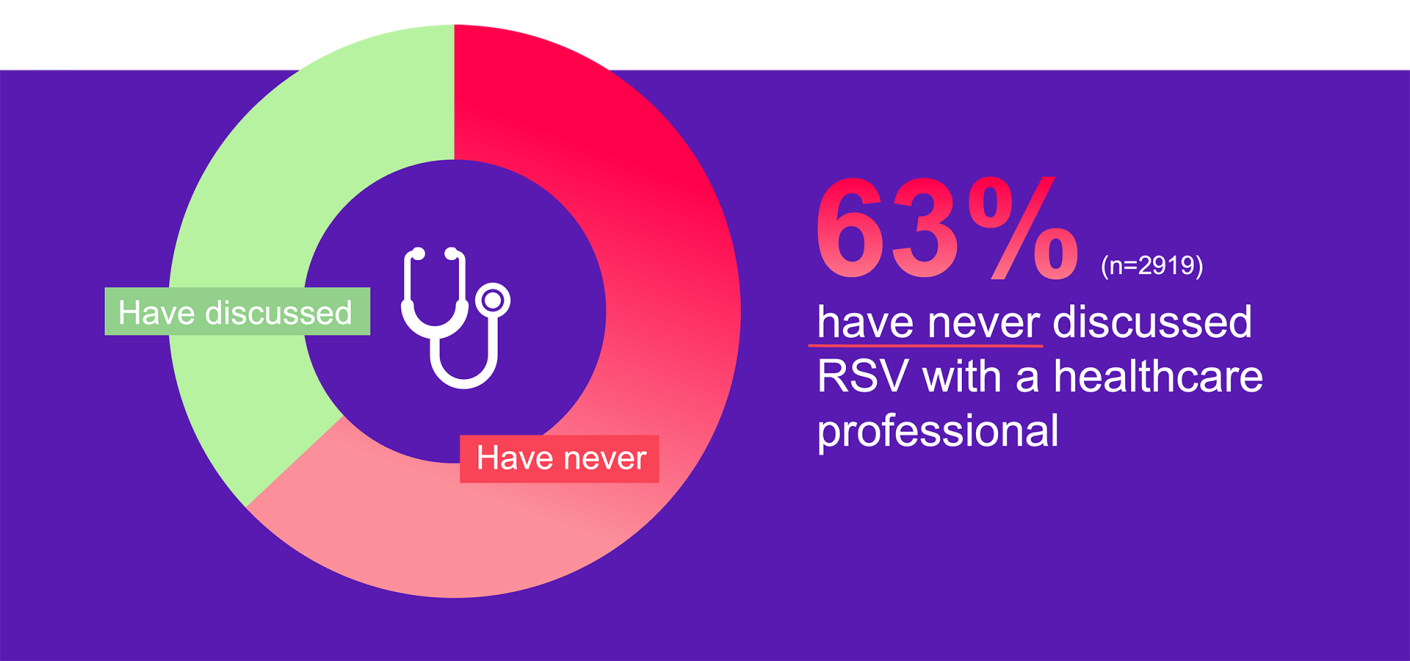RSV: an overlooked respiratory risk for adults with certain underlying conditions
A new GSK global survey1 reveals, limited awareness, widespread misconceptions and an important gap in informed conversations surrounding respiratory syncytial virus (RSV) risk and severity.
The survey, conducted by Human8 and funded and commissioned by GSK, involved 4,656 adults aged 50 and over with certain underlying health conditions, across eight countries (Brazil, Belgium, Canada, Germany, Japan, Poland, Mexico and Spain), in 10 languages.1


Respiratory syncytial virus (RSV) is often framed as a childhood illness, despite causing over 5 million infections per year in adults 60 years old and above in high income countries alone.2 This new survey has found that adults over 50 with certain underlying health conditions often misunderstand or underestimate their increased risk of developing severe RSV despite facing heightened risks.3,4,5
RSV: an unidentified threat for adults over 50 with underlying health conditions
Although 8 in 10 adults (80%) living with underlying health conditions express concern about contracting RSV, only just over half (55%)1 understand how serious RSV can be for for infants, young children and older adults in general. Only about one in three (32%) believe themselves to be definitely at higher risk of severe RSV.6

Widespread misconceptions threaten at-risk adults
75%6 of the survey respondents are living with cardiovascular disease (CVD) – the world’s leading cause of death globally that takes an estimated 19.8 million lives each year. Despite this prominent health burden, nearly two-thirds (60%) of the survey respondents living with CVD remain unaware of RSV’s potential to worsen heart failure or trigger acute cardiac events during hospitalisation.6,3,8 Worryingly, 62% of people with underlying health conditions do not recognise RSV’s link to increased risks of serious complications, including cardiovascular disease and diabetes.6

Despite active health management, RSV is often overlooked
Most survey respondents (82%) proactively manage their health with regular visits or conversations with a range of healthcare professionals (including their GP, specialists, nurses or pharmacists).6 However, conversations about RSV are few and far between – 63% report never having discussed RSV with any HCP.1,6
This highlights an important gap in which awareness and dialogue about RSV remain absent even in populations committed to managing their health, with a majority of respondents (56%) stating they are not aware if RSV preventative options are available to them,6 and crucially that one of the top barriers to taking preventative action is: “my doctor hasn’t recommended it” (37%).6

Moving forward: awareness as the first step
The findings make clear that adults over 50 with certain underlying health conditions are aware of general respiratory risks, but misconceptions and a lack of healthcare conversations leave them underprepared for RSV despite their increased risk.
Background
The RSV Awareness Week Global Survey is a global online survey commissioned and funded by GSK.1 GSK’s RSV Awareness Week (3-9th November 2025) is an annual global awareness week dedicated to improving awareness and knowledge about the risks and severity of RSV. Led and funded by GSK, RSV Awareness Week encourages informed conversations between adults and their healthcare professionals about RSV.
The survey was conducted between 13 – 31 August 2025, and comprised 15 questions covering RSV awareness, HCP engagement and specific questions for people living with certain long-term conditions.
About GSK
GSK is a global biopharma company with a purpose to unite science, technology, and talent to get ahead of disease together. Find out more at gsk.com.
References
[1] Human8 on behalf of GSK. RSV Awareness Week 2025 Survey (Brazil, Belgium, Canada, Germany, Japan, Mexico, Poland and Spain). Data on file. 2025.
[2] Savic M, et al. Influenza Other Respir Viruses. 2023;17(1):e13031. doi:10.1111/irv.1303
[3] Branche AR et al. Clin Infect Dis 2022;74:1004–1011
[4] Njue A et al. Open Forum Infect Dis 2023;10:ofad513; 10
[5] Fleming DM et al. BMC Infect Dis 2015;15:443.
[6] Global RSV Survey – Full Survey Report; 2025.
[7] WHO;2025;1-7;Cardiovascular diseases (CVDs)
[8] Ivey KS et al. J Am Coll Cardiol 2018;71:1574–1583
Code: NP-GBL-RSU-WCNT-250003. Date of Preparation: November 2025